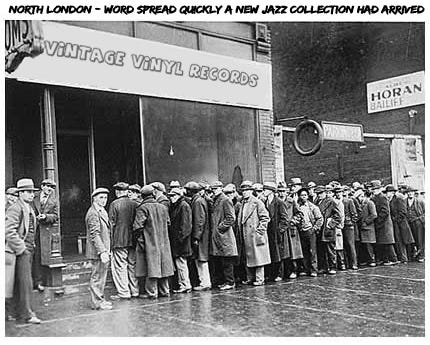So Bent, It's Straight- Part II
In this week's edition of So Bent, it's Straight, we talk about the two rampant types of scams carried out in the Music Industry in the 90s.
We write a daily newsletter on all things Music, and the Business and Tech behind it. If you’d like to get it directly in your inbox, subscribe now!
What’s good everyone?
Last week, I talked about the former Chief Economist of Spotify- Will Page, and his new book called Tarzan Economics, which goes deep into how the music industry pivoted from a decade of suffering into the much better shape it finds itself in now.
In case you missed that one or would like to read it again, check it out here.
As part of this segment called- So Bent, It’s Straight, I’m going to cover the two scams which Page outlines as rampant in the Music Industry in the 90s.
Chart Hyping 📈 & Album Certifications 🏆
Given the Rules, Charts were So Bent, they were Straight 🌀
Chart Hyping was the promotional technique used by record labels to “Hype the Chart” and get a song ranked as high as possible in the Top 40 list, as it could make or break the commercial success of the song.
The key here was getting into the Top 40, as once a song was inside it, the probability of it being consumed by listeners went up exponentially, and the momentum could carry it way ahead in the rankings.
It was as good as being on a bandwagon, once you saw that your peers or fellow music listeners are into a particular song (At that time the only way to find this out was by looking at the Top 40 charts), you’d want to get a piece of that action and hence the ‘bandwagon’ momentum got built.
So how did record labels do this?
Before there were Electronic Point of Sale machines at retail music outlets, in order to track the true number of CDs or Vinyl sold, chart companies like Billboard used to use an imperfect method of tracking the sales.
These chart companies used to ask a predetermined select few retail stores to report their sales and used to extrapolate and infer their reports from these numbers to make a generalized assumption.
Confused?
Imagine if there were only 100 shops where music CDs were sold. The chart companies used to target a select 10 out of them and use their sales figures to make a generalized assumption of the total. (Since it was not practical to report numbers for all 100 shops).
So all the record label needed to do, to hype the charts, was know which shops the chart companies were surveying- send in fake buyers to ramp up the demand, and voila- you have yourself a Top 40 song in the charts 🥳
Sounds too simple right? Guess what, it really was. All the promoters or fake buyers needed to do was establish intimate relationships with these select few retailers- offering them anything from free goods to holidays- and their cooperation was bought.
Rules for Certification were so Bent, they were Straight 💽
Ever get confused when you hear that an album went platinum or gold? What does that even mean?
Well, technically when an album reaches 500,000 in sales figures- it is classified as Gold and when it crosses the holy 1,000,000 sales figure- it is classified as Platinum.
So how did the record labels manage to bend this around?
The key is the difference between a shipment and a sale. A “shipment” is the number of records a label '“delivered” to a retailer; whereas a “sale” is the number of records purchased by the customers.
Here’s the tricky part- the certification figures were based on the shipment of the sales, not the actual sale of the records itself.
So when something went unsold at the retailer’s shop, it used to simply get returned back to the record label without any cost to the retailer. A typical purchase order call between a retailer and record label would be something like:
The record label would ask, “How many Guns n Roses records do you want?'“
The retailer would say, “How many will you give me?”
More was always better. It didn’t matter how many would eventually be purchased as the retailer could simply return them all at no cost.
So why did the record label agree to this? Wasn’t the logistics of multiple returns a burden for them?
Well it was, but- Record Label executive’s bonuses depended on how many records were shipped out of the label- not how many got sold. While this obviously affected the finances of the label, it didn’t change the Platinum status of the song or album.
Sounds insane right? It really was so accepted- it led to the use of a common phrase:
“Ship Platinum, Return Gold”
That’s it for today’s segment, next week as part of ‘So Bent, It’s Straight’ i will be covering my other takeaways from my reading of Tarzan Economics this week. Talk to you guys tomorrow!
If you liked this newsletter from Incentify, why not share it with someone you like? Let’s build the community :)
P.S- Follow us on Twitter now!







